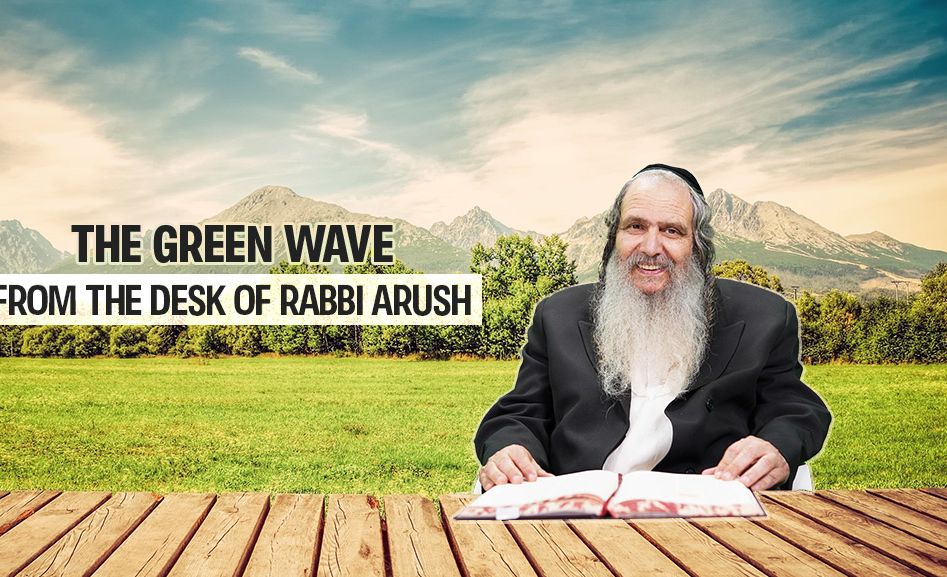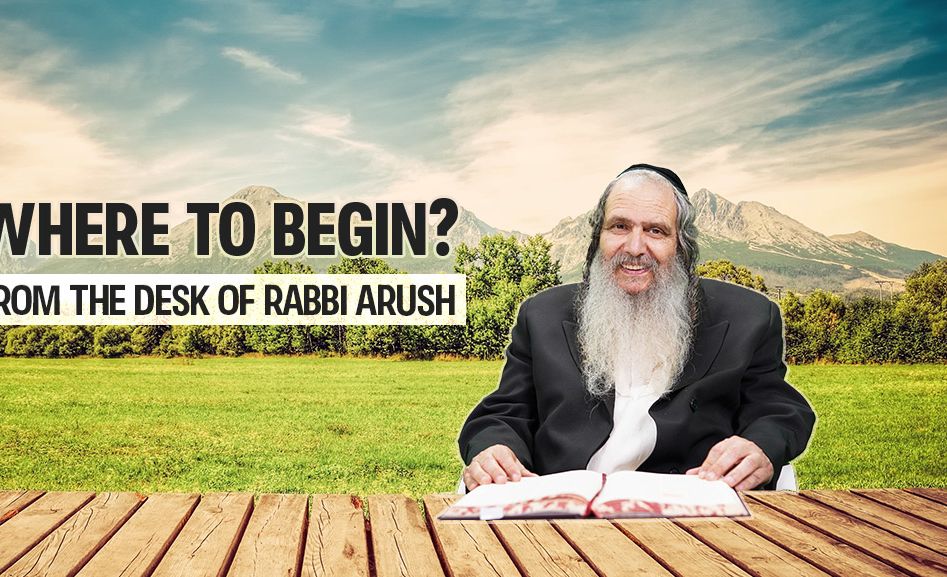
Litvish Hitbodedut
When Rabbi Yosef Kahaneman - the Ponivezher Rav – heard the cries of the Chafetz Chaim during hitbodedut, he decided to stay in Radin and study under him…

When Rabbi Yosef Kahaneman – later known as the Ponivezher Rav, who raised the banner of Torah in Israel, was returning home to his parents he passed by the the town of Radin (in Poland pre-WWII). He later recounted:
"As I was passing by Radin, I asked myself how could I pass by the "holy sanctuary" of the Chafetz Chaim without stopping there? I took a shortcut and arrived in Radin late in the afternoon. The Chafetz Chaim's house was dark.
I entered and found no one there. I sat down on a bench and wondered what the Chafetz Chaim looked like and whether I would merit to see him. As I meditated, the Rebetzin entered and asked me what I wanted. I told her that I wished to see the Chafetz Chaim. She told me to wait awhile until he arrives. While waiting for the Chafetz Chaim, I heard a piercing cry from the upper floor, a cry that bespoke terrible pain. Seeing that I had become frightened, the Rebbetzin approached me and said: "Sir don't be frightened. That's my husband praying for a woman in labor who is giving birth right now." I immediately said to myself: "Yoshe, how can you leave such a place in which dwells a man who is capable of such heartrending crying on behalf of others?!" So I decided to stay in Radin and study under him."
Compared to the previous generations, the service of prayer has almost completely disappeared. Many of the gedolim (leaders) of previous generations would regularly spend time in solitude and pour out their hearts to G-d.
The technological revolution has disconnected us with nature, and as a result, with ourselves and with G-d. The constant chatter of crowds of people, the endless noise of machines and electronic gadgets has barraged and cluttered our minds. Technology has also brought with it long work weeks at meaningless jobs, doing meaningless work resulting in millions of people with unprecedented dissatisfaction and mental illnesses.
To develop a proper awareness of G-d's presence (yiras shamayim), a person needs to spend time alone. As long as he is with other people, or involved in activities, he can put the reality of G-d's presence aside so to speak. But when he finds himself alone, especially in raw nature, untouched by the hands of man, "the awesome presence of the King falls on him and his heart breaks (Talmud Berachos 34b Rashi-'dmatzli') ". This is why the Talmud says (Berachos 5b) one should try to pray at the front of the synagogue with no separation between oneself and the wall. As long as there are other people in front of you who can see your face, you're not mentally alone and cannot turn to G-d properly (covering one's face with a tallis helps in this regard).
Of course, G-d is here with you always. He's here in this room right now. And one should pause and think for a moment about this. My teacher, Rabbi Moshe Lazerus, shlita (a Rosh Yeshiva and close student of Avigdor Miller zt''l), taught us that it is crucial to spend 10 minutes a day in seclusion and privacy in order to talk to Hashem. He used to tell us (to the effect of) "I don't know how you can daven (pray) or be religious for that matter, without having a personal relationship with Hashem. Who are you praying to? A concept? I empathize with you. Without a relationship with Him, prayer must be torture. Doing this makes Him real. G-d becomes real. The Torah becomes real, it comes alive. The Avos are suddenly real people that lived and not just stories. They're your relatives, your great-grandparents."
By the way, the procedure he recommended for this, is to lock yourself in a room every day for 5 or 10 minutes and talk to Him (no phones, etc., if possible put a "do not disturb" sign). As you talk to Him, imagine what you think He would say to you.
For example, thank Him for what you are grateful for, like health, food, good parents, etc. Then tell Him what you think He owes you…
Basically, to develop a personal relationship with Him in the tradition of the great baalei mussar.
If you're the deeply spiritual type, I would also suggest, return to nature once a month for a few hours. Send the crowds away, go to the forests or to the mountains, and seek Him in receptive silence. Many of the great baalei mussar did this on a daily basis (the really great ones hid away for years). Observe the trees and flowers and animals and birds, the sea and clouds and sky and stars. It's a tremendous way to reconnect with Him. Hopefully, the barriers will drop, and you will see, you will make contact. You will feel the King's awesome presence and the infinite wisdom in His creation. That is the cure for loneliness. Generally, we seek to cure our loneliness through emotional dependence on people, through gregariousness and noise. That is no cure. Get back to things, get back to reality. Then you will know that your heart has brought you to the vast desert of solitude, there is no one there at your side, absolutely no one.
The truth is eventually you will lose every single person in your life, never to see them again. You will lose your parents, your wife, your siblings, your children, your friends – everybody. And you will be utterly alone.
Alone that is, except for the Almighty. Now's the time to build the relationship with Him. (Just don't get me wrong. I don't advocate being a loner. A person should be "mixed" with others and try to help them, whether emotionally or physically. Rav Avigdor Miller zt''l said that you should make efforts to do things so that people will like you. The main point, though is not to lose the most important relationship.)
The Chafetz Chaim once saw a very happy student in his yeshiva come to bid him farewell before returning to his parents for the festivals. The Chafetz Chaim turned to his disciples around him and said "See how happy this talmid is to be going back to his father's house. Is this not the way a Jew should feel when he is about to die and return to his Father in Heaven?". – Sparks of Mussar pg.218
Rav Miller zt''l also gave a practical method for developing a relationship with Hashem: (tape shaar habitachon – chovos halevavos).
1. Constantly ask G-d for help.
Before you proceed on anything, ask Him for help.
Example: Salesman in waiting room. "Ribono Shel Olam, give me success with this customer."
Or if you want to learn a sugya in shas, say "Hashem, give me success in learning this subject in the gemora."
Or if you're going for a walk, ask Hashem to give you success in crossing all the streets safely.
2. Thank Hashem no matter the outcome.
If it happens that you are successful, thank Hashem profusely, at length afterwards and always consider what he did for you.
Even if you were not successful, you should still thank Hashem because whatever happens is certainly for your benefit.
Rav Miller advised that in using this method, a person will learn to attribute everything that happens to him to Hashem and build the precious fundamental, trait of bitachon (trust in G-d). People generally have an incorrect and simplistic understanding of Bitachon. They believe, if you ask hard enough Hashem will do what you want. This is really the opposite of `bitachon'. The Chazon Ish explains bitachon as – trusting that whatever Hashem does is for the best and that He KNOWS what He is doing! (heard from Rabbi Lazerus)
I'll end off with this incredible statement by Rabbi Simcha Zissel of Kelm (one of the great mussar giants of pre-WWII Europe) zt''l wrote:
"A great principle in joy of the heart and health of the body, and more for the service of G-d is to search for closeness (kirva) to G-d and not closeness to human beings. Besides being a big headache in many ways, there's no greater burden on a person than seeking closeness from other human beings. And what is a man that you want to search for closeness to him? He seems like a friend when it is to his benefit, or when he wants to, but they don't stand by a person in his difficult time (pirkei avos 2:3) But closeness to G-d, although He's not visible, there is no time that He doesn't want. Know my precious son, that the main wealth of a person is that which is in a person's hand and noone else can touch. All the more so, it should not depend on other people's whims. And one who seeks closeness to human beings, he is in need of gifts from flesh and blood. There's no difference between seeking physical gifts from others and seeking closeness (emotional gifts) from them. It's all the same. And therefore, there is no greater poor man than one who seeks closeness and love from others, and there is no greater wealth than he who has removed from himself the desire to be loved by other human beings.” – (Sefer Zikaron Beis Kelm pg.265)
In summation, the best way to get the best perspective is to begin by taking those 10 minutes a day to develop a relationship with or reconnect to Hashem.
(Reprinted with kind permission of www.dafyomireview.com)












Tell us what you think!
Thank you for your comment!
It will be published after approval by the Editor.